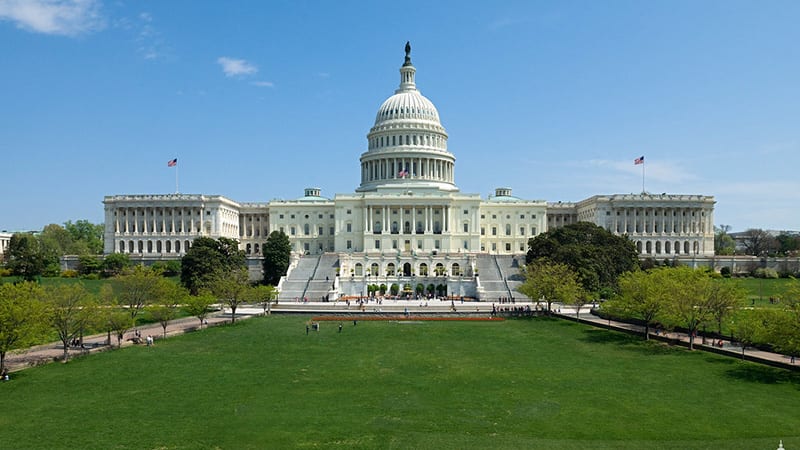UNCF Calls on House to Work with HBCUs to Improve Reconciliation

Media Contact
Monique LeNoir UNCF Communications 202.810.0231 monique.lenoir@uncf.org
With alterations, UNCF will support effort to improve higher education
On Wednesday, Sept. 8, the U.S. House of Representatives’ Committee on Education and Labor put forth language to begin the reconciliation process, including some gains for historically black colleges and universities (HBCUs) and the students they serve. While the language, somewhat inspired by the Biden Administration’s dual plans for infrastructure/jobs and families, would assist (HBCUs) and their students, in particular, first-generation and low-to-moderate income students, UNCF believes the Committee, and the whole House, can improve the language easily and make the bill’s impact truly transformational.
“My confidence in Chairman Bobby Scott is complete,” said Dr. Michael L. Lomax, president and CEO, UNCF. “That is why I am trusting him to make sure that the investments made in reconciliation help HBCUs and not put them in any disadvantage. More financial investments must be made, and HBCUs should never be put in a position to compete against the more well-resourced institutions that have higher endowments and team of grant writers ready, willing and able to siphon off the funding that the Biden Administration imagined would help our institutions.”
“Going as far back as the 2020 presidential campaign, President Biden has been fully clear and transparent about his intentions with our institutions,” said Lodriguez V. Murray, senior vice president for public policy and government affairs, UNCF. “His plans state, ‘to ensure funding is more equitably distributed among HBCUs, TCUs (tribal colleges and universities), and MSIs (minority serving institutions), the Biden Administration will require that competitive grant programs make similar universities compete against each other, for example, ensuring that HBCUs only compete against HBCUs.’ This is the commitment on which we stand as we work to ensure HBCUs are kept whole in this reconciliation process. We also hope for a more generous allocation as any effort to reduce funding to HBCUs is insensitive to summer of racial realization we experienced just a year ago. We know advocates like Chairman Scott and HBCU Caucus co-chair Alma Adams will win the day as they fight for our institutions, like usual.”
More about the House Education Committee’s reconciliation bill, as currently written, below:
- Tuition-Free Community College: Starting in award year 2023-24, for five years, provides two years of tuition-free community college for eligible students. States receive grants that decline to 80% of total student costs in award year 2027-28, with states contributing the difference. The President’s American Families Plan included $109 billion over 10 years for a free community college program.
- Retention and Completion Grants: $9 billion in FY 2022 that can be used for seven years, for a range of evidence-based institutional practices to improve retention, transfer and completion rates among students of color, low-income students, students with disabilities, first-generation students and other underserved student populations. The American Families Plan included $52 billion over 10 years for similar purposes.
- Tuition assistance for students at public and private HBCUs, TCUs and MSIs via grants to the institutions: Receiving institutions are limited in the size of any increases in their tuition and fees during the first year. The bill also provides additional institutional aid that will be available through FY 2026.
- Increase the maximum Pell grant by an additional $500 in each year through award year 2029-30: The President’s budget envisioned an $1,800 increase in the maximum grant in FY 2022, with $400 coming through appropriations and $1400 coming through a reconciliation bill or other source. The House-passed FY 2022 appropriations bill raises the maximum Pell grant by $400, which in combination with this bill would result in a $900 increase for FY 2022.
- $2 billion available through 2028 for R&D infrastructure for HBCUs, TCUs, and MSIs: This funding should be increased by $1 billion, as it has some language from the bipartisan HBCUs IGNITE Excellence Act and seeks to accomplish some of the goals of the UNCF-proposed Centers of Excellence, which was included in the Biden Administration’s infrastructure and jobs proposal. The funding should be distributed in the same formula as was the coronavirus relief.
###
About UNCF
UNCF (United Negro College Fund) is the nation’s largest and most effective minority education organization. To serve youth, the community and the nation, UNCF supports students’ education and development through scholarships and other programs, supports and strengthens its 37 member colleges and universities, and advocates for the importance of minority education and college readiness. UNCF institutions and other historically Black colleges and universities are highly effective, awarding nearly 20% of African American baccalaureate degrees. UNCF administers more than 400 programs, including scholarship, internship and fellowship, mentoring, summer enrichment, and curriculum and faculty development programs. Today, UNCF supports more than 60,000 students at over 1,100 colleges and universities across the country. Its logo features the UNCF torch of leadership in education and its widely recognized trademark, ‟A mind is a terrible thing to waste.”® Learn more at UNCF.org or for continuous updates and news, follow UNCF on Twitter at @UNCF.